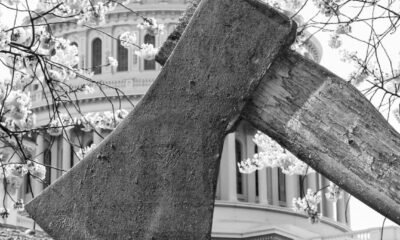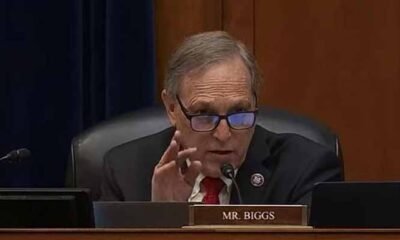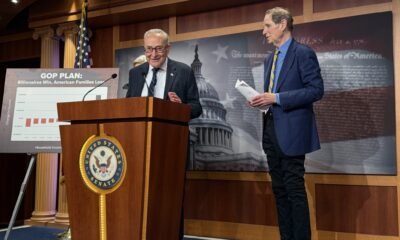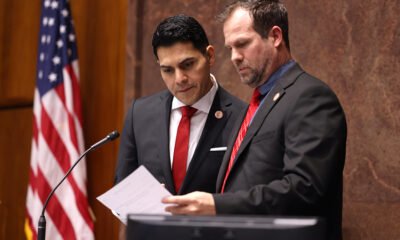Analise Ortiz
Arizona Senate President Stands Firm on Director Nomination Process Amid Majority Confirmation Praise

By Jonathan Eberle |
Arizona Senate President Warren Petersen addressed the effectiveness of the Senate Committee on Director Nominations (DINO) during a press briefing on Thursday. Established in February 2023, the committee aims to ensure transparency in executive appointments, incorporating both Republican and Democratic lawmakers in its deliberations.
Petersen explained the necessity of this bipartisan committee as a constitutional safeguard against unchecked gubernatorial powers. “The DINO Committee was created to establish a clear system of checks and balances over state agency directors,” he noted. The committee is chaired by Jake Hoffman (R) and includes members T.J. Shope (R), John Kavanagh (R), Flavio Bravo (D), and Analise Ortiz (D).
Since its inception, the DINO Committee has reviewed 20 nominations, confirming 14 while rejecting two. Additionally, three nominations await final Senate votes, and seven were withdrawn by the Governor’s office before hearings commenced. Petersen remarked, “We are receiving better quality candidates from the Executive Branch to lead these state agencies.”
Concerns have emerged among Democrats and political analysts about the committee’s potential to obstruct nominees based on ideological differences rather than qualifications. Petersen strongly dismissed these claims, stating, “We are weeding out unqualified, partisan, or corrupt individuals who shouldn’t be in leadership roles in Arizona.”
Responding to criticism regarding the Senate’s rejections, Petersen emphasized that the focus should remain on the committee’s success in confirming the majority of qualified nominees. “If the Governor sends us qualified, non-partisan nominees, they will be confirmed,” he asserted.
As of now, Governor Hobbs’ office has not commented on Petersen’s statements. Previously, her administration defended its nominees, calling out the Senate for what it characterizes as politicized obstruction.


















